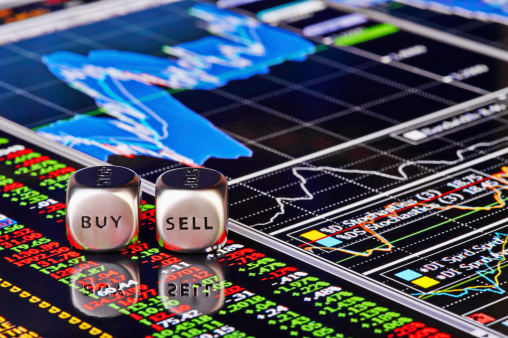Investing
Credit Suisse Raises S&P 500 Target, but Warns of Stock Market Bubble Chances
Published:
The bull market is now more than six years old. Equities are trading at what is a historically high premium against earnings, and there has not been a 10% correction in over three years. All of this sets up continued discussions about a stock market bubble or an argument for a big correction — or even a crash.
Credit Suisse has issued a new research note from its Global Equity Strategy Desk on how bullish to be in the U.S. equity market. The firm’s Andrew Garthwaite raised the 2015 target for the S&P 500 up to 2,200 from 2,170. Credit Suisse’s official weight is Overweight for equities, and the closing bell of 2,105.20 leaves almost 5% more in implied upside from stocks.
Where this research gets interesting that Credit Suisse also said that the firm now sees an above-average chance (60% to 70%) that equities will work their way into a bubble.
Garthwaite highlighted why a bubble, with bumps along the way, seems the probable end game. Earnings revisions are improving, Chinese housing data, high-yield spreads against Treasuries, U.S. growth and the notion that European debt is now oversold were all considered.
One issue is that the cost of equity could fall further. The critical issue that was brought up is that the cost of equity is still close to its norms at 8.5% in the United States and Europe. Garthwaite thinks it can fall to 7.0% to 7.5%. The firm’s fair value forward price-to-earnings (P/E) modeled for the S&P 500 is 18.3 times. That bubble warning comes from market peaks having occurred when the P/E has reached 23 on average. This would imply close to 40% upside from the current S&P 500 12-month forward P/E of 16.8.
ALSO READ: How to Protect Your Portfolio From a Summer Crash
Other factors remain highly supportive, via excess liquidity being consistent with a re-rating of 20%. Another issue is that corporate net buying is running at 6.6% of market cap, with a total of $5.5 trillion in potential firepower. Also noted was that the risk appetite is only at neutral levels, which is consistent with the recent ISM new orders.
Garthwaite believes there is a 60% to 70% chance that a bubble could form. He noted that bull markets in most assets end in bubbles. And despite Federal Reserve tightening on the way this year, central banks are likely to keep policy abnormally loose. He also believes that the U.S. dollar might actually do the majority of the tightening for the Fed.
Another historical point was that an equity bubble developed two years after the last two supply-driven oil shocks. That was in 1985 and in 1998. Credit Suisse also maintains that retail and institutional involvement in equities has been abnormally small in this bull market to date, and corporations are under-investing.
As far as if there is a bubble now, the answer is no — not yet at least. Only 1.5 of the eight metrics to count a bubble are present by the views of this Credit Suisse research note. Falling profits and a pick-up in M&A activity are there, but M&A is not anywhere close to market peak levels. Risks to the thesis are Chinese housing, U.S. wages and the prospect of corporate over-investment via buybacks.
The firm’s report shows that asset managers, as well as new economy sectors like biotech and Internet, are most likely to become overvalued. While it was noted that financials may become overvalued, the current view is that the financial sector is currently generating earnings that are historically unimpressive.
ALSO READ: Are Utilities Becoming Grossly Oversold?
Let’s face it: If your money is just sitting in a checking account, you’re losing value every single day. With most checking accounts offering little to no interest, the cash you worked so hard to save is gradually being eroded by inflation.
However, by moving that money into a high-yield savings account, you can put your cash to work, growing steadily with little to no effort on your part. In just a few clicks, you can set up a high-yield savings account and start earning interest immediately.
There are plenty of reputable banks and online platforms that offer competitive rates, and many of them come with zero fees and no minimum balance requirements. Click here to see if you’re earning the best possible rate on your money!
Thank you for reading! Have some feedback for us?
Contact the 24/7 Wall St. editorial team.